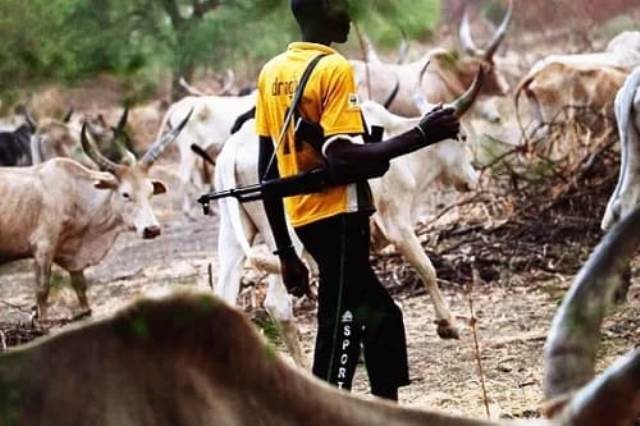Action Aid Nigeria has urged the Federal Government to urgently address the root causes of the protracted farmer-herder conflict and reverse the shrinking budgetary allocations to the agricultural sector, warning that failure to act could deepen food insecurity and undermine national development.
Speaking on Thursday at the close of a three-day National Stakeholders Consultative Meeting on the 2026 Agriculture Budget in Lagos, Country Director of ActionAid Nigeria, Andrew Mamedu, said the Federal Government and subnationals must shift focus from reactive mediation to long-term solutions that address the underlying drivers of conflict, including land scarcity, population pressure, and lack of access to critical resources.
Mamedu stated, “We recognise that the farmer-herder crisis is one of the factors affecting food production across the country. It’s not just about livestock but also crop farming. The core issue is access to scarce resources: land, feed, and water. The farmers move in one direction during the dry season, the herders move in another, and paths cross in ways that spark conflict.”
He emphasised that ranching must become a national strategy to reduce pastoral migration and prevent the encroachment of grazing animals on farmlands. He argued that cattle raised in ranches perform better economically and in terms of productivity.
“Now we know that the cattle don’t need to travel from the North down to the South just to feed. So, we can do ranching,” he said. “Research has shown that cattle that are ranched produce better and make more money. The question is: Who takes responsibility for setting up ranches? That’s where government comes in.”
Mamedu called on state governments to establish at least one ranch per senatorial district and urged the Federal Government to co-fund the initiative, remarking, “That means, at the end of the day, you have a hundred-plus ranches minimum across the country. The Federal Government can meet the state governments halfway to deal with that. Ranches are the way to go.”
The ActionAid boss also raised concerns about the sharp drop in agriculture’s share of the national budget, falling from 4.7 per cent to 1.7 per cent in the 2025 proposal.
He said, “We need to ask ourselves why our budgetary allocation for agriculture is dropping. We must take this message to the President, the Minister of Finance, and other key stakeholders. This decline must not become the new norm.”
Mamedu said ActionAid’s ongoing advocacy has already yielded results, with more state-level agricultural budgets now reflecting provisions for smallholder farmers, youth, and agroecological practices.
He concluded, “We’re getting results, but we can do way better. We must be bold enough to make agriculture a top national priority.”
In a communique issued at the end of the meeting, ActionAid Nigeria and its partners, including the Federal Ministry of Agriculture and Food Security, the Federal Ministry of Budget and Economic Planning, GIZ’s AgSys Nigeria, the ECOWAS Commission, and a network of civil society groups, outlined a comprehensive roadmap to reform Nigeria’s agricultural sector.
The communique called on the Presidency to lead with sustained, high-level strategic oversight that would position agriculture as a national priority beyond political cycles.
The stakeholders, including the Small Scale Women Farmers Organisation in Nigeria, represented by Chinasa Asonye; the Community of Agricultural Non-State Actors, represented by Rosemary Effiong; and Young Farmers in Nigeria, represented by Solihu Abdulbasit, recommended that state and local governments play active roles in financing agriculture through cooperatives, microcredit institutions, and tailored programmes that reflect local needs.
They also advocated for the decentralisation of agricultural security, calling for state-level police and forest rangers to be adequately resourced to provide faster responses to insecurity affecting farmers and supply chains.
To promote transparency, stakeholders demanded the creation of a public, digital monitoring system to track funding, project implementation, and disbursements, adding that the system must involve civil society and farmer representatives, feature regular audits, and enforce sanctions for any misuse or politicisation of agricultural funds.
The stakeholders also urged the Federal Government and National Assembly to raise agricultural funding to at least 10 per cent of total national expenditure in line with the Malabo and Kampala declarations. They called for early, front-loaded releases of capital funds to align with the farming calendar and avoid delays that disrupt food production.
The communique further recommended improvements to operational funding for agricultural field offices and ministries, with a provision to use part of their Internally Generated Revenue to respond to urgent sector needs. Additionally, ministries were advised to channel excess and unused resources into the National Agricultural Development Fund to support continuity in project implementation.
In terms of programmatic focus, the stakeholders said government must prioritise high-impact interventions such as mechanisation, irrigation infrastructure, and inclusive value chain development. They called for expanded use of public-private partnerships and increased investment in climate-resilient agriculture through early warning systems, flood control measures, and drought- or pest-resistant crops.
Support for vulnerable groups was also highlighted, with calls to train displaced persons, women, and youths in organic farming, sack farming, greenhouse cultivation, and other sustainable techniques. The stakeholders said these programs should be accompanied by educational materials on water harvesting, biopesticides, and local food production methods.
To improve the security of farmers affected by conflict, the group recommended strengthening the Agro-Rangers initiative, promoting cluster farming in secured areas, and establishing a climate intervention fund for flood-hit farmers. They also proposed hybrid pasture projects to reduce the dependence of pastoralists on open grazing routes, a move they said would reduce violent clashes.
Legislative reforms were also deemed necessary to avoid duplication of projects across federal and state lines and to enhance coordination. The communique suggested joint planning between states and the Federal Government and called on lawmakers to maintain active oversight through hearings, tracking reports, and involvement in budget processes.
ActionAid and its partners called for capacity building at all levels, especially for extension workers, farmers, and ministry officials, to ensure effective use of digital tools in monitoring, pest management, and soil testing. They also recommended expanded access to agricultural insurance schemes for smallholder farmers to mitigate risks from insecurity, cattle rustling, climate-related disasters, and kidnapping.
The group stressed the importance of equity in budgeting and demanded that at least 35 per cent of all agricultural funds go directly to women, youths, and persons with disabilities. They maintained that youth-targeted interventions should reserve 10 to 15 per cent for young agripreneurs, with 50 per cent of that dedicated to young women. They insisted these allocations should be ring-fenced within the National Agricultural Development Fund and tracked for compliance.
To foster financial inclusion, stakeholders called for reforms to land tenure systems to ensure secure land access for women and youth and the provision of collateral-free, low-interest loans to farmers through clusters and cooperatives. They emphasised the need for investments in rural infrastructure such as feeder roads, cold storage, markets, and cottage processing facilities, especially in underserved communities.
The stakeholders urged the National Centre for Agricultural Mechanisation to develop and deploy labour-saving tools like grinders and shellers, especially those adapted for women and disabled farmers, to ease drudgery and improve agricultural productivity. They also encouraged youth empowerment through innovation hubs and farm clusters, with access to digital agriculture, climate-smart practices, and processing equipment.














